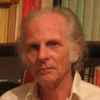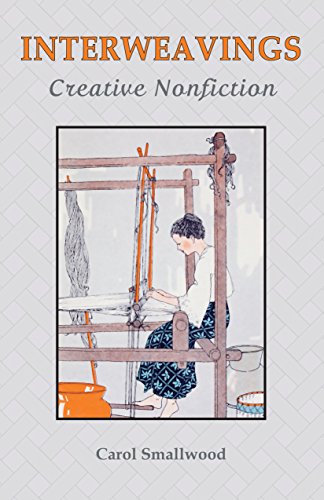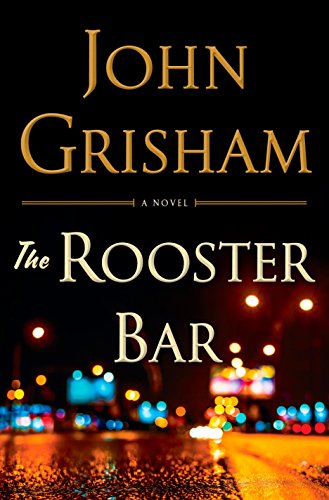 Fred Skolnik is the author of 4 novels: The Other Shore (Aqueous Books, 2011) and Death (Spuyten Duyvil, 2015) under his own name and Rafi’s World and The Links in the Chain (both in 2014) under his Fred Russell pen name. His stories and essays have appeared in around 200 journals, with a collection of his short fiction called Americans & Other Stories published in 2017 by Fomite Press. He is also the editor in chief of the 22-volume second edition of the Encyclopaedia Judaica, winner of the 2007 Dartmouth Medal. ANOTHER LOOK AT SHYLOCK
Behold! the pen is poised, the arm is raised, the words begin to flow. He barely pauses as he writes, he never strikes a line. He is William Shakespeare, at it again, writing his new play for the coming season. It is all worked out in his head, the plot, the characters; all that remains is to get it down on parchment. He is always a little excited when he starts something new. He feels the rush, a swelling in the breast. He knows exactly where he is going with this. It is the Jew who makes the play. All the rest is fluff, another afternoon's entertainment. We all know the story. The merchant Antonio secures a loan from the Jew Shylock so that his friend Bassanio can properly court the wealthy heiress Portia. Shylock stipulates that if the loan is not repaid within two months Antonio must forfeit a pound of his flesh. Antonio agrees since his ships, laden with cargo, are due back in a month. But when the ships are reported wrecked, Shylock demands his payment. And then the surprise ending. What was going on in Shakespeare's head when he sat down to write this play about Shylock the Jew? Was he or wasn't he? That has always been the question. We all want to know what Shakespeare really thought about the Jews. There had been precedents of course – Geoffrey Chaucer, for example, in the Prioress's Tale: And as the child gan forby for to pace, This cursed Jew hym hente and heeld hym faste, And kitte his throte, and in a pit hym caste. "Kitte his throte." Well, well. That had been inspired by the Hugh of Lincoln blood libel of 1255 ("slayn also with cursed Jews"). Not to be outdone, Christopher Marlowe had invented the Jew of Malta, a monster murdering everyone in sight, though it is hard to say what Marlowe had in mind, as he despised everyone ("Some Jews are wicked, as all Christians are," says Barabas). There can be no question that Shakespeare was influenced by him, but by the time he sat down to write The Merchant of Venice in around 1596, setting it in his own time, there had hardly been a Jew in England for 300 years. The Normans had brought them in and Edward I had kicked them out. In between there had been a few more blood libels and some massacres as well. These were the Middle Ages after all. Until the Jews had come along the British had mostly hated each other. Jewish movement into northern Europe had intensified as trade revived in the 11th and 12th centuries and the European economies expanded. In the south the Jews had been artisans and landowners as well as merchants, but in the north, and in eastern Europe, they came to constitute an urban commercial class whose fortunes were linked to the aristocracy, which granted them privileges and benefited financially from their activity. But while the higher secular and ecclesiastical authorities often had moderate views about the Jews, anti-Jewish feeling came to be deeply ingrained in the populace and was periodically if not continuously inflamed by the local clergy and certain particularly malevolent Church polemicists. Jew hatred had begun to develop in the Church right from the start. However, at the same time as the Church despised the Jews, it tolerated them, seeing them in the Augustinian scheme as being there to serve as object lessons and as witnesses to the truth and triumph of Christianity and themselves destined for salvation at the end of days. In the meanwhile they would live in servitude with a host of disabilities to remind them of their lowly state and errant ways. Persecution of Jews had also intensified in the 11th century, culminating in the massacres in France and Germany in 1096 during the First Crusade, though the Church Militant and the secular authorities opposed the violence. In the 12th century, in an atmosphere of increasing hostility, Jews found themselves being pushed out of trade by resentful burghers and drawn to moneylending as financial needs grew and the Church cracked down on usury among Christians. In the Venice of Shylock too, Jews had been active as moneylenders throughout the 16th century (and confined to a ghetto since 1516), though ironically it was the development of Italy's international banking system that had reduced England's dependence on Jewish moneylenders and facilitated the expulsion of the Jews in 1290. But The Merchant of Venice is not all business. Since it qualifies as a comedy in the Shakespearean canon it revolves around a commonplace romantic plot no different from dozens of others that London playgoers would have encountered in the popular theater. The difference is Shakespeare himself, who adds Shylock, without whom the play would have been meaningless, just as Hollywood films are meaningless. Romantic comedies in the Hollywood mold hold the attention for just two hours. Shakespeare has held it for 400 years. The first two scenes are all repartee and stage setting. Bassanio complains to Antonio about his courtship problem and Portia complains to her maid Nerissa about her suitor problem with a tart and witty catalogue of their faults: Ner. How like you the young German, the Duke of Saxony's nephew? Por. Very vilely in the morning when he is sober, and most vilely in in the afternoon when he is drunk; when he is best he is little worse than a man, and when he is worst he is little better than a beast. Portia will in fact emerge as the only character in the play other than Shylock who displays any real individuality. Like all writers, Shakespeare does not invest equal art or effort in all his characters. Most are perfunctory creations, there to swell a progress and start a scene or two. But now Shylock makes his appearance, hemming and hawing about lending Bassanio 3000 ducats for which "Antonio shall be bound," and refusing to dine with Antonio to close the deal, for, as he tells Bassanio, "I will buy with you, sell with you, walk with you, and so following, but I will not eat with you, drink with you, nor pray with you." This is spot on. Shakespeare knew his Jews, though he may never have met one; but then Shylock gives himself away in an aside as Antonio appears: I hate him for he is a Christian. But more for that, in low simplicity, He lends out money gratis, and brings down The rate of usuance here with us in Venice. Shylock may hate Antonio because he is a Christian, in and of itself, and because he is ruining the credit market, but he also hates him because "he hates our sacred nation," so it cannot be said that Shylock is not true to himself as a Jew. But the thing is this: in the past, Antonio has insulted him, cursed him, spat at him, and now he comes to borrow money for his friend. We can all see why Shylock is out of sorts. And now too Antonio assures him that even if he lets him have the money he will continue to curse him and spit in his face. Shylock, however, is conciliatory – though the bite of sarcasm is always there, as a hedge, I believe, protecting him against rejection – and would let Antonio have the money interest-free if he could earn his friendship, and proposes "in a merry spirit" that they go to a notary and seal the deal against a pound of Antonio's flesh. Antonio is not concerned, as his ships will bring in a profit "thrice three times the value of this bond." Bessanio is against the idea. "O father Abraham," Shylock exclaims, "what these Christians are, whose own hard dealings teach them to suspect the thoughts of others!" For what will he gain if he takes the forfeiture? "I say, to buy his favor I extend this friendship." Thus far we may have mixed feelings about Shylock, for he is a little hard to figure. But of course no one in Shakespeare's audience would have found Shylock in the least bit sympathetic, or human. They only knew their Shylocks in the single dimension of their Jewishness and everything it entailed for them. Shakespeare is to be commended then for the fullness of his portrait, the fair representation of the Jew's point of view. I'm not sure if Shakespeare shared Shylock's view of Christianity but it is admirable that he understood that Shylock had such a view. It should also be said that there is something hurt, resentful, victimized about Shylock. Shakespeare grasps this perfectly, and it is doubtful if very many Englishmen of his time could have seen the Jew in the way that Shakespeare sees him. The music of the language aside, Shakespeare's genius lay in his ability to take commonplace themes – greed, jealousy, revenge, in a word the themes of a Harold Robbins novel – and represent them with profound psychological understanding. The second act is played out in nine mostly short scenes. Here one must pause to admire Shakespeare's craft. I confess that I am surprised at how rich the play is. There is a lot going on, so many bodies to move around. Of course, most of it is just plot, but it is elaborate, neatly structured, even interesting. Now Shakespeare introduces a second pair of lovers – Shylock's daughter, Jessica, and Lorenzo, the former vowing to marry the latter and become a Christian, "ashamed to be my father's child." She is ashamed of both his usury and his "manner." That's fair. Wronged or not as a Jew, Shylock is beginning to come across as an unattractive type with all his whining and self-pity, a manner that seems to say, "Aren't you a fine lot of Christian gentlemen beating down the poor Jew." Is Shakespeare himself ambivalent about Shylock? I think not. Jessica is the giveaway. If his own daughter despises him, who wouldn't? Now, while Shylock is at Antonio's to settle the loan business and Portia is at Belmont, her estate on the mainland, dealing with another suitor, Jessica elopes with Lorenzo, but not before taking some ducats and jewels from Shylock's hoard. This is a little hard to fathom, turning a heroine into a thief. I am at a loss to understand how Shakespeare rationalized this in his own mind, other than bowing to the need to heat up the plot. In any case, Shylock alerts the Duke to the theft. In the meanwhile Bassanio has gotten his loan and sails to Belmont laden with gifts. The thing with Portia is that in accordance with her father's will she must marry the suitor who guesses which of three caskets contains her portrait. Thus far, to her great relief, everyone has failed. There now comes news that one of Antonio's ships has been wrecked. Shylock vows to get his pound of flesh, as vengeance for being disgraced, hindered, thwarted, mocked, simply because he is a Jew, and now we get the famous "Hath not a Jew" speech concerning eyes, hands, organs and all the rest. Is Shakespeare playing the devil's advocate, or does he sympathize with the Jewish condition? It is hard to say, for then we have Antonio arriving and Shylock ranting about his stolen jewels and ducats and wishing his daughter dead, so we cannot really say what Shakespeare wishes us to think. Meanwhile, over at Belmont, Bassanio has picked the right casket and wins Portia, who presents him with a ring as a pledge and token of her devotion, which, if lost or given away, would signify for her that he no longer loves her. To keep things symmetrical, Bassanio's friend Gratiano now becomes enamored of Portia's maid Nerissa. Enter Lorenzo with "his infidel," namely Jessica, and now they learn that all of Antonio's ships have been wrecked and he is ruined and the Jew is demanding his pledge and no one can dissuade him from it. Portia sends Bassanio off to Venice to pay the debt, even double and triple the amount, anything to get the Jew off their backs, but not before marrying him, that is, Bassanio, as does Nerissa with Gratiano. Shylock has had Antonio arrested. Portia announces that she is retiring to a monastery until Bassanio returns, and asks Lorenzo and Jessica to house sit for her. But the saucy gal has a few tricks up her sleeve. Now comes the big courtroom scene, the Duke presiding. Shylock will not relent. Bassanio arrives with 6000 ducats but Shylock rejects the offer. He wants his pound of flesh. At this point Nerissa appears, disguised as a man, albeit a short one, and presents a letter from Bellario, a renowned doctor of law, introducing a young colleague to the Court, who will present an opinion in his stead. And yes, it is Portia posing as that same young colleague under the name of Balthazar. Right from the start she urges mercy on Shylock, but to no avail. Por. The quality of mercy is not strained; It droppeth as the gentle rain from heaven Upon the place beneath it; it is twice blessed: It blesseth him that gives and him that takes…. It is enthroned in the heart of kings. It is an attribute of God himself. Clearly, if there is an overriding theme in the play it is this Christian idea of mercy set against the perceived Jewish idea of justice according to the letter of the law – waved in the Jew's face as it were – with mercy of course getting the upper hand. But now Portia examines the bond and declares that it is valid. Shylock can barely contain himself, still refusing the money, and Antonio is ordered to lay bare his breast, and Shakespeare plays the scene for all it's worth, to the hilt, milking it dry, as the saying goes, and there would have been gasps and hisses in the audience for sure, a veritable ecstasy of Jew hatred. London would be talking about this for weeks. And then, like a thunderbolt from heaven: Por. Tarry a little – there is something else. This bond doth give thee here no jot of blood; The words are expressly a pound of flesh: Take then thy bond, take thou thy pound of flesh; But, in the cutting, if thou dost shed One drop of Christian blood, thy lands and goods Are, by the laws of Venice, confiscate Unto the state of Venice. Well, now, she has got him, and he knows it, there will be no pound of flesh today, the Jew is foiled, defeated, humiliated, yes he is, and to make a long story short, Antonio is awarded half of Shylock's lands and goods, as the penalty for his "seeking the life" of another citizen "by direct or indirect attempts," and the state the other half. But Antonio has a better idea: to award the goods and lands to Jessica and Lorenzo – half now and half after his death – and furthermore that Shylock be made to become a Christian – and so it is done. To put a cap on things, there is one more twist. "Balthazar" refuses payment from Antonio for his services, but offers to take Bassanio's ring as a token. Bassanio is understandably unwilling to part with it, remembering Portia's words. But Balthazar insists and Bassanio relents, and again to maintain the symmetry the disguised Nerissa cajoles Gratiano into giving her his ring too. And now, back at Belmont, some fun with the rings and the girls confessing to their ruse and news that three of Antonio's ships have come in safe and sound and so to bed and all's well that ends well except for the despised Jew. The most common error made by those who wish to understand Jew hatred is to see it as a historical and social phenomenon whose causes are to be sought in objective circumstances – economic conditions, for example, or even Jewish crimes. Jew hatred is not that at all. It is a pathological phenomenon and its causes are to be sought in the mind of the Jew hater rather than in historical circumstances or in the real or imagined actions of the Jews. Circumstances, historical or social, may awaken or exacerbate Jew hatred but to do so the hatred must already be there. We kill for this or that immediate reason but we would not kill if we did not have murderous feelings. Antonio may hate moneylenders as usurers but he hates Shylock as a Jew. Jew haters hate Jews first and then find the reasons to. This is the one basic distinction that has to be made to understand the nature of Jew hatred. The accusations made against Jews, from Christ killing on down, have therefore been, all through history, not the causes of Jew hatred but the pretexts or rationalizations or vindications for it. Whether such accusations were true or not, whether the Jews really were well poisoners or usurers or Host desecrators or ritual murderers, was entirely irrelevant. The hatred or animosity or aversion felt by Christians toward Jews had nothing to do with what they did. Since Jew hatred infested the entire Christian world, it must necessarily have had the same cause everywhere, which, if not the Jews themselves – their crimes or bad character – must lie in the nature of Christianity itself, or in human nature as such, or in a combination of the two. In the time of the early Church, new Christians did not understand that it was the Jews they were meant to hate until the Church told them to. They would have been happy to hate someone else. It is after all a fact that people incited by the Church to hate Jews hated other people as well, with or without the prompting of the Church. The hater looks around for someone to hate. The Church gave him the Jew. Admittedly, he might have found the Jew without the help of the Church, just as he found others to hate, but it is the Church as the prime mover that bears the guilt, and therefore it has to be said, without qualification, that the hatred of Jews that the Church brought into the Christian world is responsible for every act of violence ever directed by a Christian against a Jew. In the early Church, Jew hatred always involved two principal elements: resentment and rivalry. Though the Jews were not active proselytizers like the Christians, their religion nonetheless attracted outsiders and was therefore perceived as competing with Christianity in the business of winning souls. How Christianity responds to rivalry can be seen in the religious wars inspired by the emergence of the Protestant faith. Why the Christian responds so violently to rivalry is once again more a matter of pathology than of ideology. Nietzsche has described Christianity as the religion of resentment par excellence – "a resentment experienced by creatures who, deprived as they are of the proper outlet for action, are forced to find their compensation in an imaginary revenge … the vindictive hatred and revengefulness of the weak" (The Genealogy of Morals). Certainly Christianity attracted the downtrodden, the oppressed and the spat upon, and brought with it great hatred of the strong. Paul states this very clearly (1 Corinthians 2:27-28): But God has chosen the foolish things of the world to confound the wise; and God has chosen the weak things of the world to confound the things which are mighty; And base things of the world, and things which are despised, has God chosen, and things which are not, to bring to naught things that are. But while this may explain why the Christians hated the Romans, or the rich and the powerful in general, it still does not explain why they hated the Jews or any other spiritual rivals, namely, why they hated those who were as weak as themselves. In fact, even when the Church became strong the resentment did not abate, for, especially in its strength, it continued to attract the weak. Why do the weak hate or resent the weak? Some will say because they remind them of their own condition, causing them to hate in others what they hate in themselves. Some will say in order to elevate themselves over and above these others and have something lower than themselves to despise and against which to measure and affirm themselves. Some will say because the others do not acknowledge their superiority, even challenge it and deride it, thus diminishing those who wish to think highly of themselves. Whatever the cause, it is supremely ironic that Christianity as a religion professing love should have attracted so many followers who were prone to the most vicious kinds of hatred. The Christian found his strength and identity in his faith, attaching himself to a community and to a system of values and beliefs that gave him his sense of dignity and worth, so that whatever threatened it threatened him as well. Without this faith he had nothing and was nothing. Without it he became what he had always been. Out of this faith he built a great tower and inhabited it as though he were a tower himself, full of righteous pride. The Jew refused to acknowledge the truth of this faith and thereby shook the foundations of the Christian's idea of himself and undermined the elaborate structure he had erected to sustain himself and magnify his self-esteem. The Jew stood against him stubbornly maintaining that the truth lay elsewhere and thereby enraged him as any creature is enraged when its sustenance is stolen from out of its mouth and the solid ground on which it stands is pulled out from under its feet. The Jew stood against the Christian and would not give him the affirmation that he required to elevate himself above the Jew and the Christian hated him for it. That affirmation could only be found among other Christians. When the Christian stood alone he remained weak, undistinguished, but when he joined together with the others and became part of a crowd or mob or community looking down at the miserable Jews, he felt strong, secure, exalted, and together with the others invented all the reasons in the world why he should continue to hate them. The Jew, however, would still not acknowledge the primacy of the Christian faith and this gnawed at the Christian soul, it made the Christian's stomach churn and brought the heat to his face, it reminded him of who and what he was, but he did not understand his own pathology and continued to believe his own lies. Many observers have understood the need of the mediocre to place themselves above a despised group. In conventional sociological terms this is called racism or bigotry. In the Christian world it was known as truth. But Jew hatred has never been confined to the weak. It has also manifested itself among the strong. One would have thought that the strong would not need someone to hate as much as the weak, but the fact is that many strong individuals have hated Jews just as vehemently. That is because Jew hatred does not spring up overnight. The seed is planted very early in the Christian home. Whether it will bear fruit depends on the character of the Christian child. Whether he requires a figure like the Jew to fortify his fragile identity in the same way that his parents, his teachers and the village idiot do is entirely a personal matter that has very little to do with Jews. Whether he can overcome this need is strictly a question of the strength of his character. By the time he reaches maturity it is too late, he has already slipped into the habit and surrendered himself to the reflexes of Jew hatred. It hardly needs to be said that after an absence of 300 years the Jew existed for Englishmen and for Shakespeare not as a reality but as an emblematic figure, like the bogeyman. The Jew in his emblematic aspect stood for everything that was un-Christian and therefore negated the faith upon which the Christian's identity was built, negated the Christian himself in effect and the virtues he claimed to possess and which enabled him to hold himself erect regardless of his personal circumstances. But of course this was a monumental piece of hypocrisy, as the English themselves were as far removed from the spirit of Christianity as any people have ever been, barely human in their mobs and cruel beyond measure as lords and ladies. Christianity was therefore an idea that was seldom lived in England, as was the case in the rest of Christendom. But if it was not lived, it was thought, and the thought for most was as good as the act, for most people prefer to be judged by what they profess rather than what they do. The cruel paradox then was that the Jews were hated for not accepting a faith whose spirit the Christians themselves violated every minute of the day. Other than clerics, however, there would have been very few people in England in the year 1600 who hated Jews actively. Out of sight, out of mind, as the saying goes. They only hated Jews when they thought about them, and only the clerics thought about them constantly. But the potential for hatred was there in the idea of the Jew that they bore within them, dormant or not, like a germ. Given the opportunity, when the Jews had resided among them, they had hated them as well as anyone. Shakespeare too, I am convinced, would not have hated Jews, but he would have shared the British aversion to them, though even in the worst of times, being Shakespeare, he would certainly not have attached himself to an English mob engaging in one of its massacres. At the most he would have written a play, which is exactly what he did. In England, where all emotion is filtered and mediated through social conventions, and one's social identity is achieved by conforming to these conventions, Jew hatred among the quasi-civilized, after the Jewish resettlement in the middle of the 17th century, mostly resolved itself into distaste, expressed in the very special way the British have of expressing their disapproval, in the cutting remark that evokes the imaginary British standards that the object of one's scorn fails to live up to. In the pubs and football stadiums the expressions of displeasure are of course a little more vocal. Not all Christians hate Jews of course. In the modern world fewer and fewer do, and while many remain hostile to Jews or have an aversion to them or simply dislike them, many have an entirely neutral attitude or even admire them and the Church itself, it must be said, has ceased to be a hostile influence. However, since 1967, traditional European Jew hatred has been reinforced by Israel hatred, which is a respectable form of Jew hatred in a time when Jew hatred as such has become unfashionable. This is the contribution of the political left and generally goes hand in hand with hatred or resentment of America. Criticism of Israel is by no means the same thing as Jew hatred. One need only look at the venomous language of the anti-Israel blogs to understand the difference. What should be clear is that Israel would not be hated if it wasn't Jewish. If Israel was an Arab country and the Palestinians were indigenous non-Muslim Sudanese, let us say, and you had the same conflict and the same occupation and the same "ethnic cleansing," hardly an eyebrow would be raised. The Six-Day War was a godsend for Jew haters, a fertile breeding ground where an ingrained aversion to Jews could blossom into undisguised enmity. Ironically, Arab or Muslim hatred of Israel, however fanatical, at least has the virtue of being the by-product of a national conflict and is therefore comprehensible in conventional historical terms, unlike such hatred among Israel haters in the West, which is the outgrowth of a scarred and twisted psyche. This is the nature of Jew hatred in our time.
0 Comments
Lois Greene Stone, writer and poet, has been syndicated worldwide. Poetry and personal essays have been included in hard & softcover book anthologies. Collections of her personal items/ photos/ memorabilia are in major museums including twelve different divisions of The Smithsonian. ARTIFICIAL YET INTELLIGENT |





 RSS Feed
RSS Feed